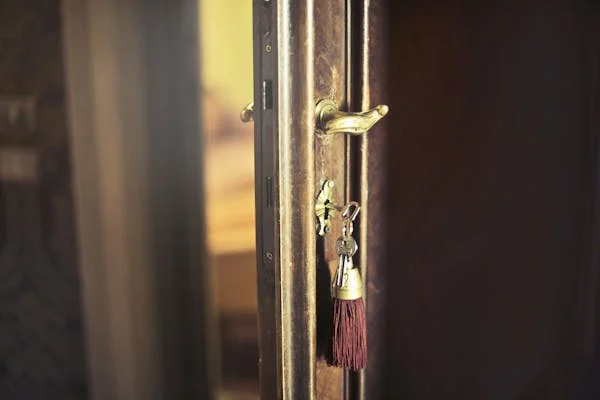When it comes to home security, the locks on your doors are the first line of defense against unauthorized entry. Making sure they are working properly and accessible only to those you trust is crucial. Homeowners often face a choice between rekeying or changing their home locks for heightened security or after a transition like moving into a new house. Each option has its merits, concerns, and specific scenarios where it is most appropriate. Below, we’ll delve into the advantages and considerations of both rekeying and changing locks to help you decide which method suits your needs best.
Cost Comparison: When Is Rekeying More Economical Than Replacing?

Cost is often one of the main considerations when deciding between rekeying and replacing locks. Rekeying is generally less expensive as it requires less labor and materials. Only the pins within the lock cylinder are changed, which is a straightforward process for most locksmiths and incurs minimal expense.
Replacement, on the other hand, involves buying new locksets, which alone can be significantly more costly, especially if you opt for high-end or smart locks. Furthermore, the installation may require alterations to your door, which adds labor hours and potential additional costs for carpentry or painting services.
The cheapest way to change locks on house might be rekeying if you have recently moved or if you just want to ensure that an old key is no longer active. It’s an optimal balance of cost-efficiency and security improvement, particularly when multiple locks need to be addressed. If you’re on a tight budget but still want to improve your home’s security, rekeying could be the more fiscally responsible choice.
Exploring the Benefits of Changing Home Locks

Changing locks, on the other hand, involves removing the entire lock or lockset from a door and replacing it with a new one. This approach is ideal when the existing locks are outdated, or damaged, or you want to upgrade to a higher level of security with newer, more robust locking mechanisms.
New lock installation allows for a wide range of options, including the latest technology in home security, such as electronic or smart locks that offer keyless entry and can be controlled remotely. These advanced options often come with features that contribute to enhanced security, such as the ability to track who enters and leaves your home.
Rekeying Versus Changing Locks: Factors To Consider for Home Security

When deciding whether to rekey or change your locks, there are several factors to consider surrounding home security. Rekeying is a simple, quick fix that might be suitable if no security vulnerability exists in the physical hardware and you simply need to prevent old keys from working. It’s an ideal choice when you trust the resilience of your current locks but seek peace of mind knowing that lost or stolen keys are no longer a threat.
Conversely, changing your locks can be a necessary step if you’re dealing with outdated or compromised lock mechanisms or if you’re seeking advanced features such as enhanced pick resistance, key control systems, or smart home integration. New locks can also be an opportunity to standardize the locks throughout your home, ensuring all doors have the same level of security.
How To Decide Between Rekeying and Changing Your Home Locks

Ultimately, deciding between rekeying and replacing locks is contingent on balancing the factors of cost, convenience, security needs, and personal preferences. If your existing locks are modern, secure, and in good working order, yet you need different keys—a rekey could be the practical choice. However, if you’re encountering issues with the current hardware, desire modern features, or want to change the look of your doors, installing new locks is worthwhile.
Consider the advice of a reputable locksmith when making a decision. They can provide insights into the quality and security of your current locks and what improvements might be necessary. They’ll also offer a professional perspective on whether your security needs can be adequately met by rekeying or if a full lock replacement is advisable.
Altogether, whether to rekey or change locks depends on your specific situation and what you value most in home security. Considering the pros and cons of each, alongside costs and potential future needs, will help you make an informed decision to protect your home effectively and efficiently.





